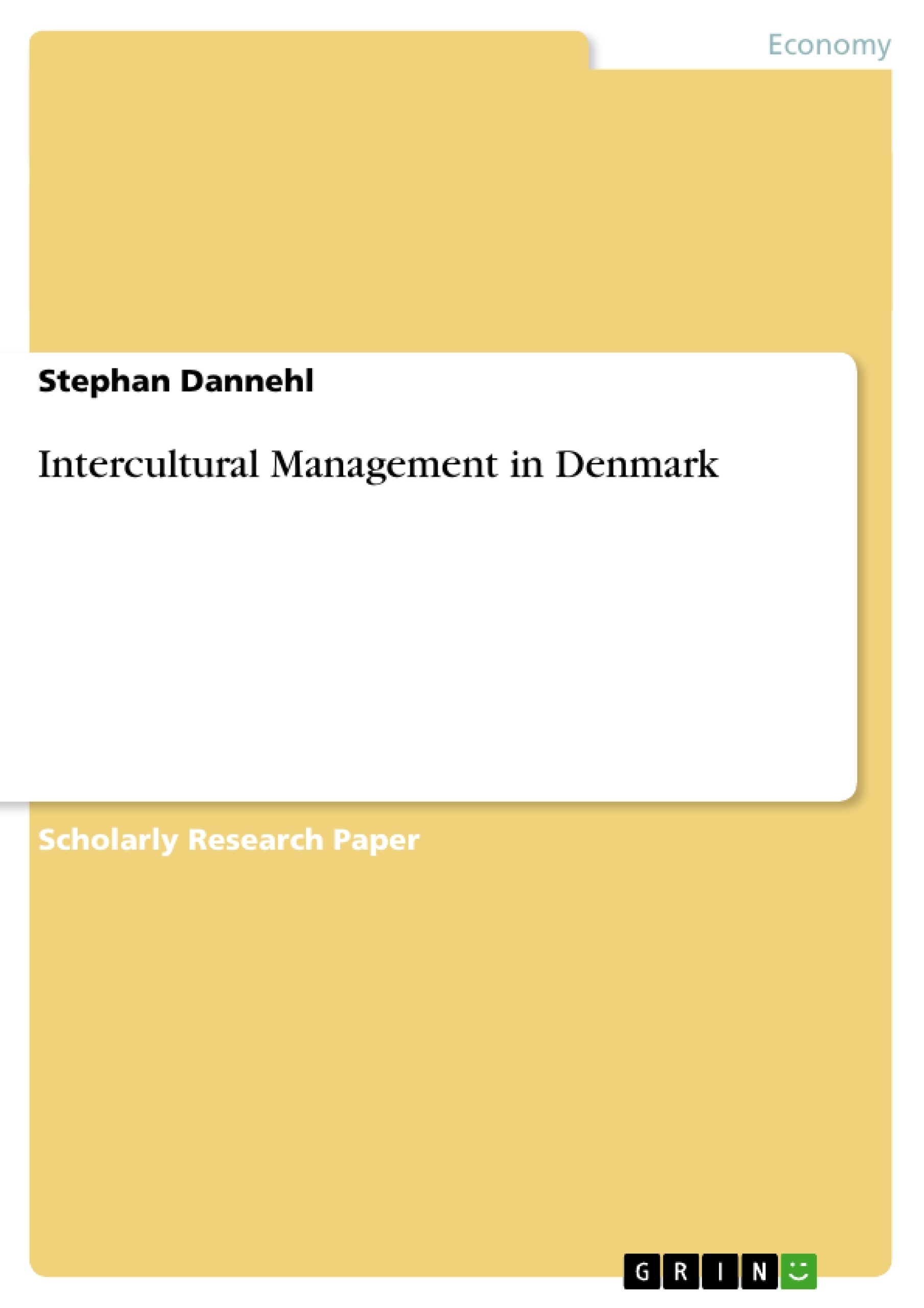First of all, the Danish economy is very dependent on trade with other countries. and due to the fact that Germany is Denmark’s most important bilateral trading partner, it seems to be clear why it is of particular significance that especially German managers who are currently doing business with Denmark as well as those who are willing to do so in the near future should be sufficiently aware of the domestic economic and political framework. While doing so, it is not only possible to strengthen the general commerce or individual business relations, but also to benefit from the cultural exchange arising from the trading partners’ business relationships.
As it is vitally important to take the basic economic and political background into account before starting business in an international context, we now need to consider what the economic and political structure in Denmark looks like in detail.
Inhaltsverzeichnis (Table of Contents)
- Preface
- 1. ECONOMIC AND POLITICAL BACKGROUND
- 1.1. Basic indicators in comparison
- 1.2. Economic and political structure
- 1.2.1. Denmark and the EU
- 1.2.2. Denmark and its foreign policy
- 2. SOCIO-CULTURAL BACKGROUND
- 2.1. The importance of the Danish welfare system
- 2.1.1. The Danish education system
- 2.2. The Danish way of life
- 2.2.1. The concept of equality
- 2.2.2. The "Law of Jante"
- 2.2.3. Social individualism
- 2.2.4. The influence of the family
- 2.2.5. The concept of "hygge"
- 2.2.6. The urge for security
- 2.3. The cultural life in Denmark
- 2.3.1. The philosophy of sport
- 2.3.2. Clubs and associations
- 2.4. The importance of culture-specific models
- 2.5. Basic assumptions of the Danish culture
- 2.6. The cultural dimensions by Hofstede
- 2.6.1. Power Distance
- 2.6.2. Individualism versus Collectivism
- 2.6.3. Masculinity versus Femininity
- 2.6.4. Uncertainty Avoidance
- 2.6.5. Long-term Orientation
- 2.7. Summary of cultural aspects
- 2.1. The importance of the Danish welfare system
- 3. INTERCULTURAL COMMUNICATION
- 3.1. The Greeting
- 3.1.1. Verbal introduction
- 3.1.2. The exchange of business cards
- 3.1.3. Topics of conversation
- 3.2. The value of gifts
- 3.3. The working environment
- 3.4. Para-verbal communication
- 3.5. Non-verbal communication
- 3.5.1. The Smile
- 3.5.2. Proxemics
- 3.5.3. Gestures
- 3.5.4. The Danish dress code
- 3.1. The Greeting
- 4. LEADERSHIP AND DECISION BEHAVIOUR
- 4.1. The hierarchical structure
- 4.2. The decision-making process
- 4.3. Dealing with criticism
- Summary
Zielsetzung und Themenschwerpunkte (Objectives and Key Themes)
This paper aims to provide an in-depth understanding of the intercultural aspects of doing business in Denmark, particularly focusing on the relationship between Danish and German companies. The paper seeks to analyze the cultural influences on business interactions and decision-making processes, highlighting the significance of cross-cultural awareness in international business ventures.
- The economic and political framework of Denmark
- The socio-cultural background of Denmark, including the Danish welfare system, the Danish way of life, and cultural dimensions
- Intercultural communication practices in Denmark
- Leadership and decision-making styles in a Danish context
- The impact of cultural differences on the relationship between Danish and German companies
Zusammenfassung der Kapitel (Chapter Summaries)
The first chapter provides an overview of the economic and political landscape of Denmark, comparing it to Germany. This chapter focuses on key economic indicators, the role of Denmark in the EU, and the country's foreign policy. The second chapter delves into the socio-cultural background of Denmark, examining the welfare system, the unique Danish way of life, and the concept of "hygge." It also explores the cultural dimensions of Denmark as identified by Hofstede. The third chapter focuses on intercultural communication practices in Denmark, including greetings, gift-giving, the working environment, and non-verbal communication. The final chapter discusses leadership and decision-making behaviors in Denmark, exploring the hierarchical structure, decision-making processes, and the role of criticism in the Danish workplace.
Schlüsselwörter (Keywords)
The primary keywords and focus topics of this paper include: intercultural management, Denmark, Germany, business relationships, cultural influences, decision-making, communication, welfare system, the "Law of Jante," "hygge," Hofstede's cultural dimensions, leadership styles, cross-cultural awareness.
Frequently Asked Questions
Why is intercultural management important for German managers in Denmark?
Germany is Denmark's most important bilateral trading partner. Understanding the Danish cultural and economic framework is vital for strengthening business relations and avoiding misunderstandings.
What is the "Law of Jante" (Janteloven)?
The Law of Jante is a socio-cultural concept in Scandinavia that emphasizes collective equality and discourages individual boasting or thinking one is better than others.
What does the concept of "hygge" mean in a Danish business context?
While "hygge" refers to coziness and social atmosphere, in business it translates to a friendly, informal, and secure working environment that values well-being.
How are decisions typically made in Danish companies?
Danish leadership tends to be less hierarchical than in many other countries, favoring consensus-based decision-making and open dialogue between management and employees.
What are the key cultural dimensions of Denmark according to Hofstede?
Denmark is characterized by low power distance, high individualism, a strong "feminine" orientation (valuing quality of life), and low uncertainty avoidance.
What is the appropriate dress code for business in Denmark?
The Danish business dress code is generally more casual and practical than in Germany, reflecting the cultural emphasis on equality and lack of rigid hierarchy.
- Citation du texte
- Stephan Dannehl (Auteur), 2003, Intercultural Management in Denmark, Munich, GRIN Verlag, https://www.grin.com/document/48282



